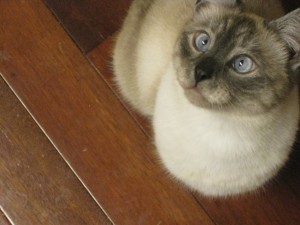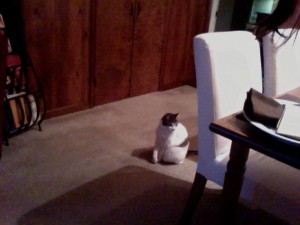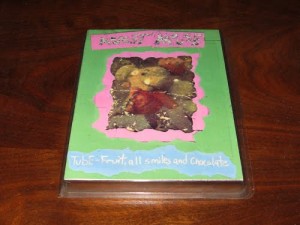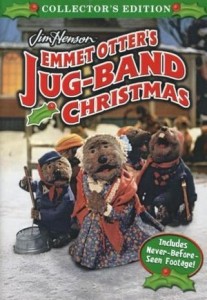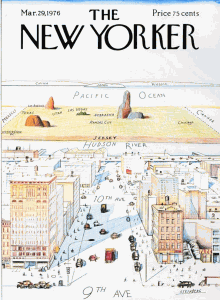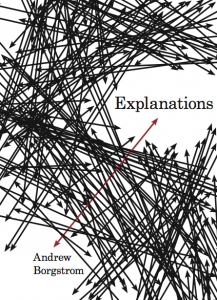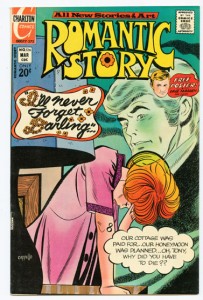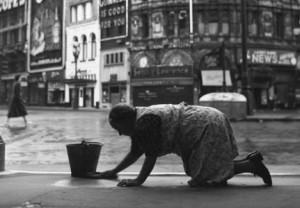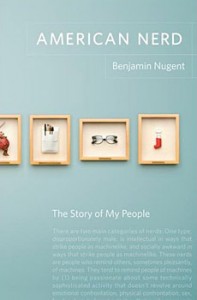 Katie gave this to me to read and I’d expected light Klosterman fluff. Klosterman blurbed the book, for instance. Instead, I got a wonderfully smart book on the origins of nerddom that was incredibly researched without being bogged down by its incredible research. Nugent reads proto-nerds in Dr. Frankenstein, Austen’s Mary Bennett, and Forster’s Tibby (from Howards End, currently reading). He roots the stereotype in anti-Semitic terror around wartime, as something “muscular Christianity” had to fight against.
Katie gave this to me to read and I’d expected light Klosterman fluff. Klosterman blurbed the book, for instance. Instead, I got a wonderfully smart book on the origins of nerddom that was incredibly researched without being bogged down by its incredible research. Nugent reads proto-nerds in Dr. Frankenstein, Austen’s Mary Bennett, and Forster’s Tibby (from Howards End, currently reading). He roots the stereotype in anti-Semitic terror around wartime, as something “muscular Christianity” had to fight against.
Or, well, maybe it’s others than have done the rooting for him, but Nugent is if anything a skilled amalgamator of material. But then he reads hipsters (current, Williamsburg “look at this fucking” hipsters) as fake nerds, and suddenly he’s maybe the smartest guy in the room. It’s a form of rebellion kids make away from “bobo” parents, Nugent argues (following Brooks), an alignment with some artificial form of purism. (Hence PBR, trucker caps, taxidermy, mustaches: it’s all old school.) Then he quick-sums-up Mailer’s “White Negro” (which argued that white hipsters in the 1950s fabricated an identification with the Negro to hold onto the living-under-threat they felt during the atomic age) and ends up here:
What we have right now, in Brooklyn, the Bay Area, Portland, East Los Angeles—neighborhoods where bourgeois young people work at magazines, movie studios, TV shows, Web sites and advertising, so that cultural trends work like weather at sea, offering the newcomers a chance to prove themselves, upending the complacent—is a similar choice on the part of the privileged to identify with the outsider. The outsider in this case is the nerd, because nerds are people incapable of, or at least averse to, riding cultural trends. When your greatest fear is that you will become a loser because your intuition will fail to keep up with tastes, you embrace the nerd like a little harmless teddy bear who’s the one creature in the whole wide world who would never do anything to hurt you. (121, my emphasis).
Yes! I’m unable to recall the product sold and Google searches brought up nothing, but there’s some booze commercial with panracial hipsters dancing a nightclub, and there’s one guy with classic nerd glasses and carefully chosen “nerdy” clothes, and you look at him dancing in this club with all confidence and you know he, like, got laid at age 13.
Maybe hipsters-as-fake-nerds isn’t some groundbreaking revelation but it hit me as smart. And then there’s the rest of Nugent’s book, about his own nerd upbringing, which is racially and socioeconomically complicated and generally tragic and yet uplifting. Honest, overall. Go buy this book.
UPDATE: It’s this guy, below, from this stupid commercial.


